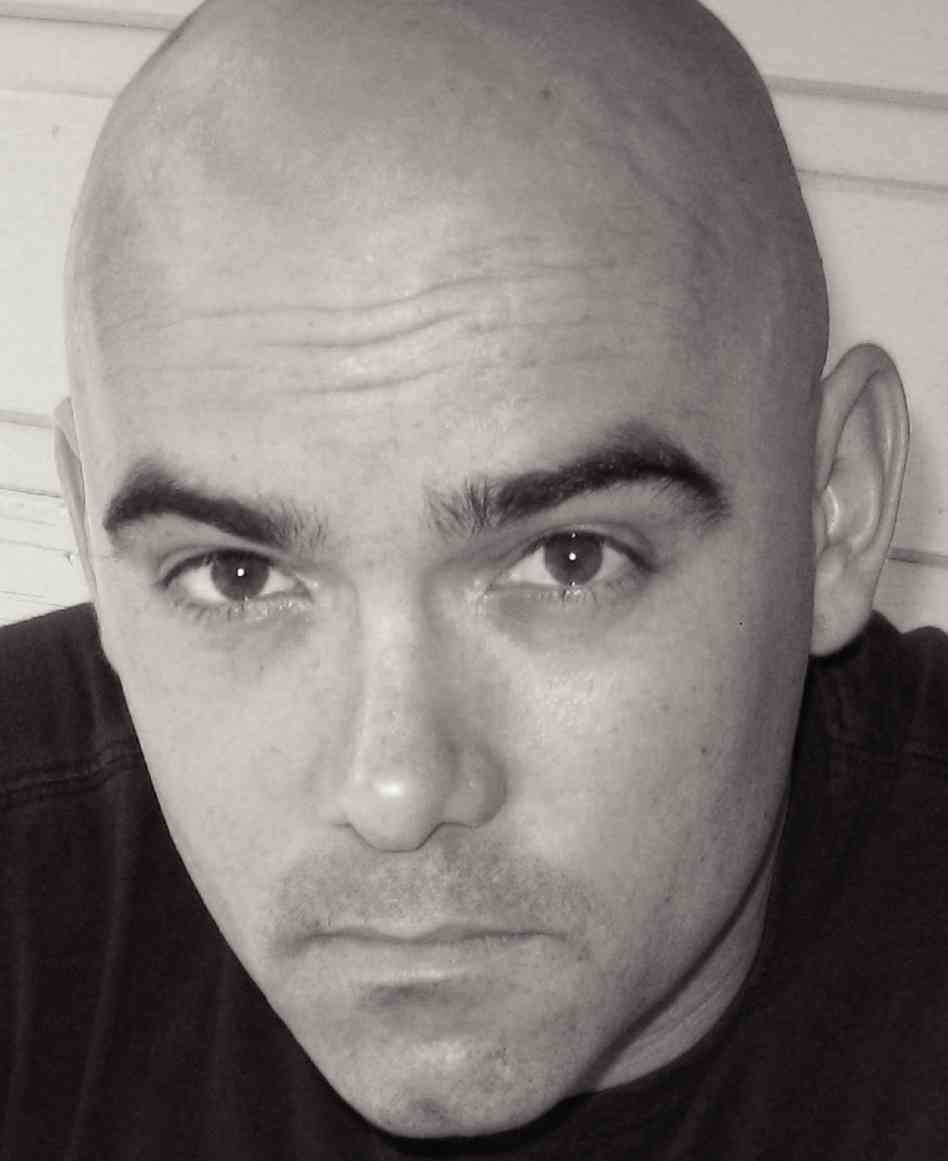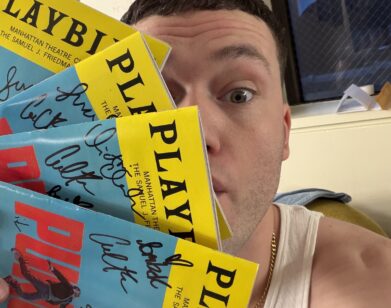Philipp Meyer’s Savage West

ABOVE: PHILIPP MEYER. IMAGE COURTESY OF THE AUTHOR
Philipp Meyer’s 2009 debut novel, American Rust, established him as a major literary talent. A gritty novel set in a Philadelphia steel town, it drew comparisons to the novels of William Faulkner, Ernest Hemingway, John Steinbeck, and Cormac McCarthy. The novel earned Meyer much critical attention, as well, and put him on The New Yorker‘s “20 Under 40 list” celebrating young writers worth keeping an eye on. The working-class characters of American Rust had dreams beyond than the small town they grew up in; now, Meyer’s second novel, The Son, aims even higher. It’s an epic Western spanning four generations of Texans, from the days when Comanche attacks were a simple fact of frontier life, through the Civil War, the cattle boom, a blood feud with Mexican ranchers, and finally the oil boom ushering in the modern era.
Publishers Weekly has already called The Son a “destined classic.” And it has the larger-than-life sweep common to a certain tradition of great literature that takes a culture’s mythic history as its subject. But what is most impressive about Meyer’s novel is how fast you end up turning the pages—almost 600 of them. Its central character is Eli McCullough, a patriarch who casts a long shadow, but whose story begins as a boy whose frontier family is killed by Comanche. A natural outdoorsman, mentally and constitutionally tough, he passes a few Comanche tests (his poet brother does not). Then Eli becomes Comanche-at least for a little a while.
EVAN WINCHESTER: There’s a paragraph where Eli scalps a man who resembles his father. After a paragraph jump, right away we’re into a matter-of-fact list of the man’s belongings.
PHILIPP MEYER: Yeah, in the case of when he kills and scalps the scalp hunter, he is definitely going through the guy’s possessions in his head, trying to get over the horror of doing this. He’s killed people a couple times. It’s like with child soldiers. On one hand, they adapt super quickly to killing, because their minds are so very, very malleable. On the other hand, it’s shocking.
When we think of the myth of the settling of the West, this is our creation myth. But because we think of it as mythology, not as real people interacting with other real people, we ignore the cost of human lives, and blood. I think the Cormac McCarthy approach, where you wipe out a massive village and move on—at least with Blood Meridian—I didn’t want to do that. I didn’t want the novel to be unrealistic in the sense of avoiding violence, because it was a very violent time in history. But I also did not want the violence to become too cinematic, you know?
WINCHESTER: Something that really comes through in the novel is that violence is a way of life for the whites and for the Comanche. It’s part of life. There’s a part of the novel—it was an Eli chapter—that suggested that the Comanche had less psychological baggage around killing, because it was part of living in a war culture.
MEYER: Yeah, absolutely. I think that they did, too. But they knew what they were doing. They always knew what they were fighting for. They were fighting for the benefit of people that they personally knew. They were fighting for the extended family unit conglomerated into a village of 1,000 people. They’re not fighting for an abstraction in the way that modern, Christian-era European armies do when they travel several thousand miles and then go into battle. Are they personally benefitting from this? Not really. They’re told they’re fighting for glory and their way of life or whatever. But in truth, they’re probably fighting for the benefit of the people who run that country. Folks living in smaller societies don’t really have that problem.
WINCHESTER: At certain points, the novel moves into the mythic register, when healing is taking place. For instance, Peter begins to write in Maria’s voice.
MEYER: Exactly, right.
WINCHESTER: And as he starts to empathize with her and write in her voice, he’s also retelling legends. When the book moves into the mythic register there, those are some of the novel’s moments of profoundest empathy.
MEYER: That’s absolutely true. There’s a reason that all societies and cultures and small bands of humans engage in myth-making. Fundamentally it is to help us understand ourselves. It’s to help us understand each other, help us understand where we come from. It helps give your life as an individual a context and a meaning, and there’s this practical thing in terms of having social coherence as well. Peter is definitely doing that when he’s writing in Maria’s voice.
And on a broader level, the character of Eli in the structure of this book—I didn’t really have an Eli character at first. To write a historical novel, all the heroes that I have are all the big modernists—Joyce, Faulkner, Virginia Woolf. They didn’t write historical fiction, really. Faulkner, a little bit. This book took exactly five years to write. I was two and a half years in, when I realized that I had a bunch of people sitting around and talking about how America was founded, and it was sort of like the characters spouting philosophical bullshit from my brain. And I realized it was fundamentally not working. If you’re going to do that, you need to write a book of nonfiction.
I actually had to engage in myth-making as I went along. That’s what the character Eli is. He is a compelling character, and a lot of that is because what he does is an incredibly compelling story. We forgive a lot of the violence he commits because he is so sympathetic.
WINCHESTER: Well, Eli’s actions are motivated. You can understand where he’s coming from. You don’t think of him as a monster when he commits these acts, because he is a person. He sneaks through the Comanche camp at night and puts the tortured captive out of his misery. He’s also a teenager. He’s coming of age. He’s getting laid for the first time when he’s in these Comanche tents. Once he re-enters white society, you remember that he’s just a boy. It’s almost like, Who is this? Huck Finn? Is he just, like, this normal boy again? No, he has this very traumatic history he’s dealing with. And it’s going to come out again and again, and it comes out later against the Garcia family.
MEYER: The mythology of the country is something we don’t like to deal with. We really don’t think of these people as actual human beings, in terms of the founders of our country and the founders of these big family dynasties. Because often they did incredibly unpleasant things. When you talk to these families now, who came from people like Eli McCullough, they think of their ancestors almost as gods.
WINCHESTER: It’s like when Peter is thinking about his father, Eli, and asks himself, “Was he a fossil?” What was he? As if he were something other than human, part of the earth, part of the ancient history of the place. I kept thinking of this novel by Paul Harding, called Tinkers. It opens on a man on his deathbed in his home, imagining a vision of the roof collapsing and then everything caving in.
MEYER: Oh! Sure.
WINCHESTER: Even while the voices of his family surround him. In that novel, his memory telescopes back in time, and he goes back remembering through several generations. In your novel, we get that telescoping experience through the other major character, Jeannie McCullough, who at the end of her life has fallen and is literally lying on the floor. We see the story of her life, but also the entire novel telescopes through that person.
MEYER: I had to have that modern character because on a structural level, I needed the book to talk about what was happening in the present. Because otherwise it’s just a historical piece that doesn’t really give you the context. She’s not exactly an archaic character, because she brings her family into the modern age and saves them financially. But she is the last character who has any real connection to the land and this whole way of life.
WINCHESTER: I’m curious if there’s anything interesting you want to talk about from your research for this book.
MEYER: I’ve pretty much either camped or hunted in every area in Texas where this book takes place. I probably read at least 250 books on Texas. And I think there are a hundred that I’ve since gotten rid of that were digitized. [laughs] I took weeks of tracking classes on how to track animals, how to eat edible plants. I taught myself to bow hunt, killed a couple deer with a bow, tanned their hides. I found a buffalo rancher in south Texas. I went out with him and killed two buffalo. I ended up—because the Comanche do this and a lot of native societies tend to do this—one of the buffalos I’d shot… I raised it to bleed it, and filled up a coffee mug with blood, and drank it. With all the research, I found there were also errors in books by authors of Westerns that I really admired before. That was disheartening.
WINCHESTER: Would you mind mentioning some of those?
MEYER: Look, I think Cormac McCarthy is one of the great American novelists. But researching this book, I found that there are a couple things in Blood Meridian that he got wrong, or took creative license with. There’s a book called My Confession. The last hundred pages of My Concession, Cormac basically re-wrote as Blood Meridian. That book was printed about 1900. My approach was that if some piece of historical writing that I came across was very compelling, I would try to forget it. Because I am not that comfortable using events from history, unless they are extremely minor.
WINCHESTER: Any thoughts for first-time novelists?
MEYER: It’s a tough road. I quit a banking job when I was 28. My friend Karen Russell was the total opposite, the young success path. I thought that I would have a huge literary novel coming out when I was, like, 29. I quit my banking job, and I was halfway through my second novel—and I will never publish it, because it’s very mediocre. Within a year, year and a half, I was out of money, and the book had been rejected by pretty much every major literary agent in the country. What I thought was going to happen did actually happen, but it took 10 years, instead of a year. And I think that’s pretty common. Again, Karen and others had that incredible success in their mid-20s, you know. The opposite can also happen. I guess Wells Tower is kind of the same. By far the most common story is that we all have a ton of novels put away in our drawer, we all fail for a long fucking time before anyone pays attention to us, and that is actually what most successful people do. You can’t rush to publish books.
THE SON IS OUT TODAY.






